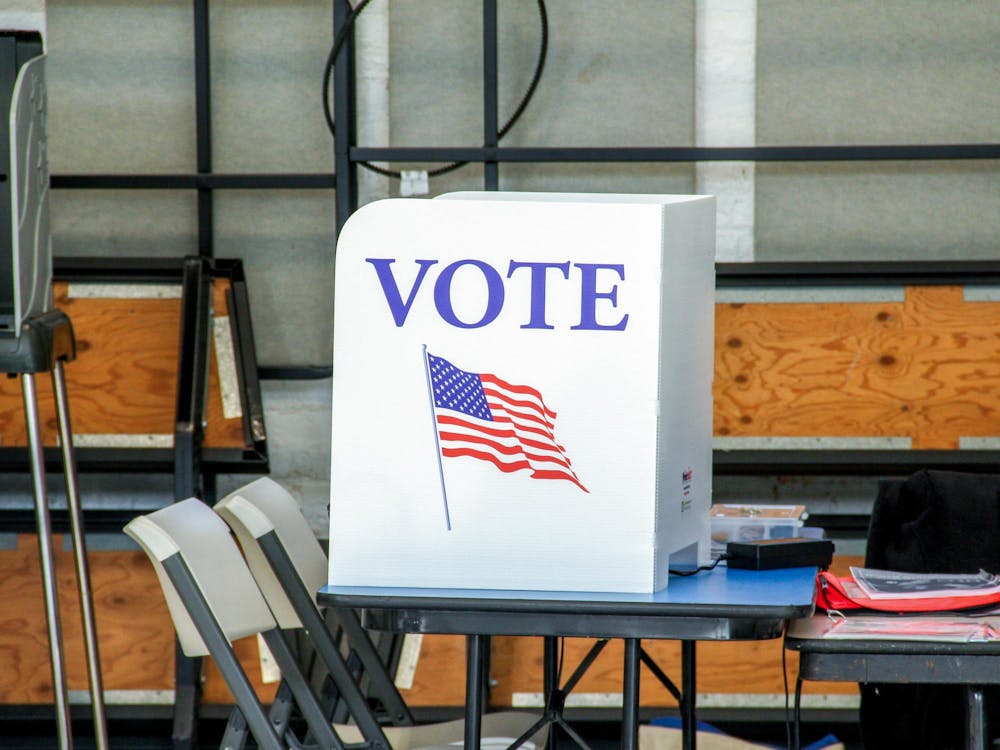Update 3:47 p.m. Monday: On Monday, the N.C. Supreme Court temporarily blocked the lower court’s Friday ruling, which had given over 60,000 voters 15 days to prove their eligibility to cure their contested ballots.
The state Supreme Court order, signed by Republican Justice Trey Allen, did not include a reason for the decision. It also did not indicate whether the state Supreme Court would take up the case in full.
Below is the original article.
Five months after Republican Jefferson Griffin lost the N.C. Supreme Court race to Democratic incumbent Associate Justice Allison Riggs, a panel of three judges on the N.C. Court of Appeals — where Griffin currently serves — ruled Friday that over 60,000 ballots that Griffin claims are fraudulent should be recounted and verified.
The race was initially held in November but has since been making its way through the courts as Griffin has remained engaged in a legal battle over the results.
Voters whose ballots have been called into question were given 15 business days to provide documentation and verify their eligibility with election workers. Anyone who fails to respond or provide the appropriate identification within this timeframe will have their vote in the state Supreme Court race thrown out.
Griffin’s lawsuit alleges that these voters’ registrations do not comply with the Help America Vote Act of 2002, which requires either a voter’s driver’s license number or the last four digits of their Social Security number in order to properly register. Other contested ballots come from overseas voters that Griffin claims failed to provide proper photo identification — some of whom may include Duke students who voted while studying abroad in the fall.
The ruling was passed in a 2-1 decision along party lines, with both Republican judges ruling in Griffin’s favor.
In a race that was decided by as few as 734 votes out of 5.5 million, a recount has the possibility to change the results of the election and put incoming Duke Law student Griffin in office. If the results are overturned, the 5-2 Republican majority on the N.C. Supreme Court will become a 6-1 majority.
North Carolina is currently the only state to still have a 2024 statewide race left unresolved. Friday’s ruling is unlikely to be the final step in a process Asher Hildebrand, professor of the practice in the Sanford School of Public Policy, has called “the legal equivalent of throwing a bunch of crap at the wall and seeing what sticks.”
“We will be promptly appealing this deeply misinformed decision that threatens to disenfranchise more than 65,000 lawful voters and sets a dangerous precedent, allowing disappointed politicians to thwart the will of the people,” Riggs wrote in a Friday statement.
Her appeal would likely go to the N.C. Supreme Court, on which Riggs currently sits, and she has agreed to recuse herself should that arise. Griffin recused himself from the Court of Appeals case deliberations.
If Riggs loses her appeal at the state level, she plans to appeal to federal court.
The case has implications extending beyond the scope of the state Supreme Court election, as overturning voters’ ballots in this race could call into question the legitimacy of other races in which they voted in 2024 and possibly beyond.
Political figures on both sides of the aisle believe the case speaks more broadly to the principles of the American democratic process.
In his 66-page dissent to the Friday decision, Democratic judge Tobias Hampson wrote that “changing the rules by which these lawful voters took part in our electoral process after the election to discard their otherwise valid votes in an attempt to alter the outcome of only one race among many on the ballot is directly counter to law, equity and the Constitution,” adding that Griffin did not “identify a single voter” who was not eligible to vote in the election.
For majority judges John Tyson and Fred Gore, however, Griffin was entitled under the N.C. Constitution to “an accurate counting of votes” and “has a legal right to inquire into this outcome through the statutorily-enacted and postelection procedures available to him.”
Editor’s note: This article was updated at 3:47 p.m. April 7 with information on a temporary block issued by the N.C. Supreme Court.
Get The Chronicle straight to your inbox
Sign up for our weekly newsletter. Cancel at any time.

Holly Keegan is a Trinity junior and a senior editor of The Chronicle's 120th volume.

